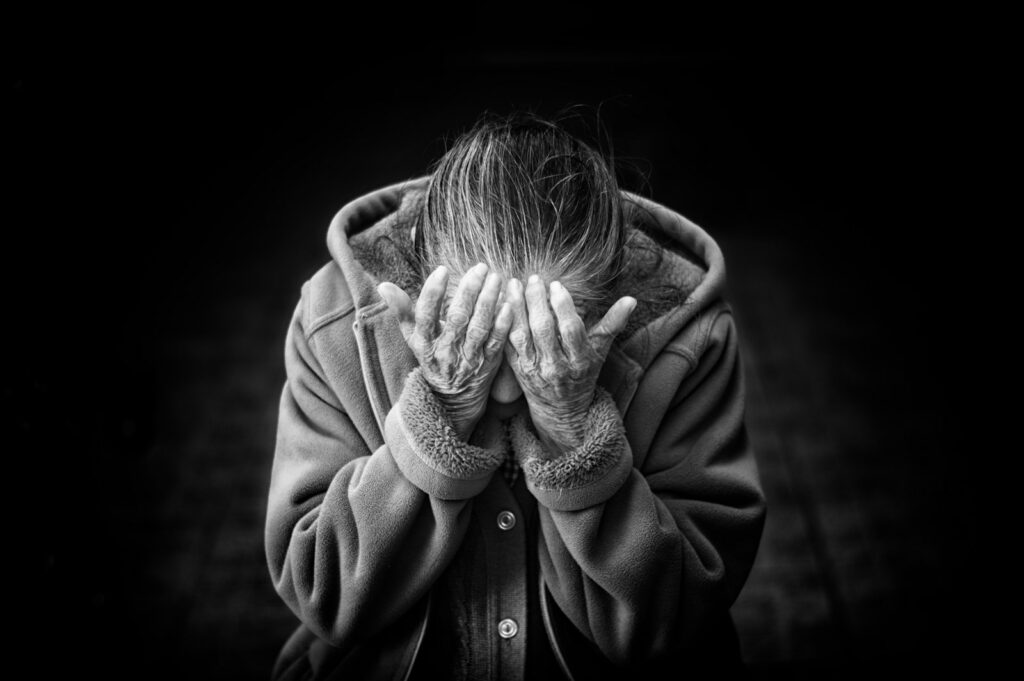Grief is a natural emotional response to loss, particularly the loss of someone or something significant to you. While most often associated with the death of a loved one, grief can also result from other losses, like the end of a relationship, loss of a job, health decline, or any other major life change. Everyone experiences grief differently, but the feelings and reactions are a common human experience.
Grief is not a single emotion—it’s a complex process involving a range of feelings, thoughts, physical sensations, and behaviors. There’s no right or wrong way to grieve, and the process can vary significantly from person to person. Some may feel intense grief right after a loss, while others experience it more gradually.
What are the Stages of Grief
While everyone experiences grief in their own way, the concept of the Five Stages of Grief can provide a general framework to understand common responses:
- Denial – Shock and disbelief that the loss has occurred. It’s a protective mechanism to help process the overwhelming reality.
- Anger – Frustration and helplessness, which may be directed at oneself, others, or even the person who has died.
- Bargaining – The “what if” stage, where a person might dwell on how the situation could have been different.
- Depression – A deep sadness and despair. The reality of the loss sinks in, and it can feel all-consuming.
- Acceptance – Coming to terms with the loss, which doesn’t mean forgetting but finding a way to move forward while acknowledging the impact.
It’s important to note that not everyone experiences these stages in a linear order, and some may not go through all of them.
What are the Symptoms of Grief
Grief manifests differently in each individual, but some common symptoms include:
Emotional Symptoms
- Sadness or Despair: Deep feelings of sorrow, which can feel overwhelming.
- Anger or Irritability: Anger directed inwardly or toward others. A person might feel short-tempered or resentful.
- Guilt: Regret about things left unsaid or undone, or feeling guilty for surviving.
- Anxiety: Fear of the future, feeling lost or unsure how to move forward without the person.
- Numbness: Feeling disconnected from emotions or others, a sense of being in a fog.
- Relief: In some cases, particularly after a prolonged illness, feelings of relief may follow the loss.
Physical Symptoms
- Fatigue or Exhaustion: Lack of energy or feeling physically drained.
- Appetite Changes: Eating significantly more or less than usual.
- Sleep Disturbances: Difficulty falling asleep, staying asleep, or sleeping too much.
- Aches and Pains: Physical symptoms like headaches, stomachaches, or chest tightness.
- Weakness: A sense of physical weakness or heaviness.
Behavioral Symptoms
- Crying or Tearfulness: Frequently crying, sometimes unexpectedly.
- Social Withdrawal: Avoiding social interactions, feeling disconnected from others.
- Difficulty Concentrating: Struggling to focus or complete daily tasks.
- Searching for the Deceased: A tendency to look for the person who has died, to call their name or visit places they used to frequent.
- Restlessness: A feeling of not being able to sit still or constantly needing to do something.
Cognitive Symptoms
- Confusion: A sense of mental fog, difficulty remembering things, or losing track of time.
- Preoccupation with Loss: Constantly thinking about the loss, replaying events, or imagining different outcomes.
- Forgetfulness: Trouble remembering even simple tasks or being absent-minded.
What is Complicated Grief?
For some, grief can become complicated or prolonged, where the symptoms remain intense and do not improve over time. In these cases, grief may feel like it is getting worse rather than better. If this happens, it’s essential to seek professional support.
How Do I Cope with Grief?
Grieving is a unique process, and finding a way to cope may take time. Some methods to help with coping include:
- Talking to Others: Sharing feelings with friends, family, or a support group.
- Expressing Emotions: Allowing oneself to cry, write, or use creative outlets.
- Creating Rituals: Finding meaningful ways to remember or honor the loss, like creating a scrapbook, writing a letter, or planting a tree.
- Self-Care: Paying attention to physical needs, getting adequate rest, eating well, and seeking medical care if necessary.
- Seeking Professional Help: Consulting a therapist or counselor who specializes in grief to provide guidance.
Grief is a natural part of life, a process that reflects the importance of the relationships we have and the significance of what we’ve lost. It can be a journey, one that may not have a defined endpoint, but a gradual shift from sorrow to a new understanding of life and how to move forward with the memory of what has been lost.
When Should I Seek Help for Grief?
It’s normal for grief to be intense initially, but if it persists beyond a few months without signs of easing or if it leads to severe depression, substance abuse, or self-harm, seeking professional help is crucial.

